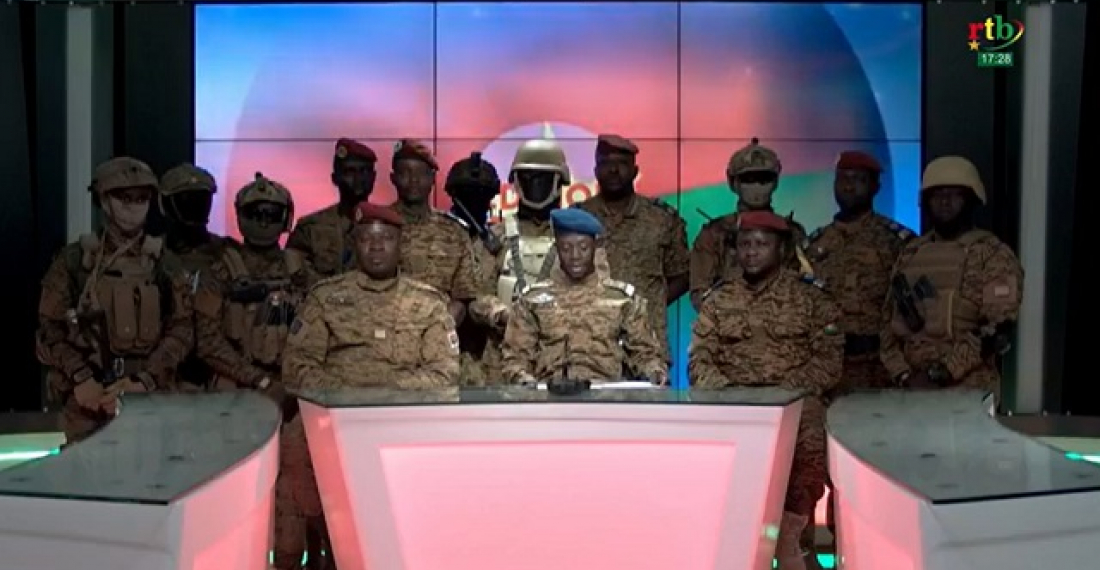The president of Burkina Faso – Roch Kaboré - has been overthrown by a group of soldiers in the third military coup in West Africa in eight months.
The Patriotic Movement for Safeguard and Restoration (MPSR), "which brings together all the components of the defence and security forces”, has decided to put an end to the power of Mr. Roch Marc Christian Kaboré, Captain Kader Ouedraogo, surrounded by a dozen armed troops, said on national TV last evening (24 January). The putschists announced the closure of land and air borders from midnight, dissolved the government and the National Assembly and "suspended" the Constitution. A curfew was also decreed, from 9 pm to 5 am, throughout the country, "until further notice".
The announcement came the day after heavy gunfire was reported near the presidential residence and at several military barracks in the landlocked country. On Monday, the UN Secretary General, António Guterres, who said he was following the situation "with deep concern", called on the military "to lay down their arms" and "ensure the protection" of President Kaboré, who, according to his entourage, has been placed in a "guarded villa".
Meanwhile, the deposed president has disappeared from the public eye. The public television RTB published on Twitter a handwritten letter signed by the former leader, in which he says he "submits his resignation", "in the best interest of the nation, following the events that have taken place" since Sunday. Kaboré, re-elected in 2020 on the promise to make the fight against jihadists his priority, was increasingly challenged by a population exasperated by jihadist violence and his inability to deal with it.
“The country is cracking under the tremendous stress jihadist insurgents have been placing on it for several years,” said Michael Shurkin, director of global programmes at Dakar-based consultancy 14 North Strategies. Indeed, for the past two years, violence has been targeted at the country's many gold mines. Jihadist groups, looking for lucrative sources of funding, have not hesitated to carry out massacres, create taxes on miners and take over mining operations.







